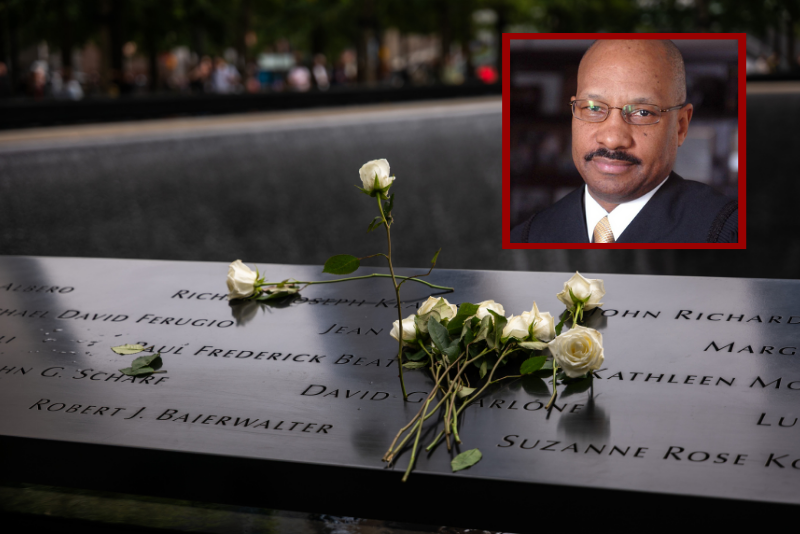
OAN Staff Blake Wolf and Brooke Mallory
3:50 PM – Thursday, September 11, 2025
Family members of 9/11 victims scored a significant victory after a federal judge ruled that Saudi Arabia could be held accountable in a civil lawsuit for its purported role in facilitating the September 11th terror attacks.
The decision came after two decades of litigation, in what family members of 9/11 victims are describing as “the most consequential step yet.”
Brett Eagleson, whose father was killed in the attacks, described the ruling as a “historic, landmark decision,” allowing the case to move forward in court.
Advertisement
“There were at least 13 Saudi government officials connected to the Ministry of Islamic Affairs. They were working and operating in and out of the Saudi consulates and the Saudi embassies,” Eagleson stated. “There were funneling support from the Ministry of Islamic Affairs in Washington, D.C., to their embassies in San Diego, to the hijackers’ handlers, right down to the hijackers themselves.”
“It’s been 24 years of pain and anguish and fighting for our families. What happened to this community, what happened to America that day, was horrific. However, what’s happening currently and what’s been happening for the past 24 years has been an abomination,” he continued.
Eagleson went on to name two individuals who were allegedly part of an “advanced team” sent by the Saudi government to aid al Qaeda in orchestrating the attacks — a claim that the Saudi government still denies.
Since 2003, attorneys representing Saudi Arabia have argued that, since Saudi Arabia is a sovereign state, it is immune to civil litigation in U.S. courts.
Nonetheless, U.S. District Judge George Daniels ruled that the 9/11 victims’ families provided “reasonable evidence” that Omar al-Bayoumi and Fahad al-Thumairy, two Saudi citizens, were sent by the Kingdom of Saudi Arabia (KSA) to assist the hijackers in the United States.
“KSA did not proffer sufficient evidence to the contrary,” Daniels stated. “Although KSA attempts to offer seemingly innocent explanations or context, they are either self-contradictory or not strong enough to overcome the inference that KSA had employed Bayoumi and Thumairy to assist the hijackers.”
The judge went on to say there is evidence that KSA sent Bayoumi to San Diego, California, in 1994, with the plaintiffs arguing that he was co-opted by Saudi Intelligence — which Bayoumi has since denied.
“Some of the disputed facts cannot be resolved at this stage of the litigation, because weighing the evidence or assessing witnesses’ credibility will need to take place at trial,” Daniels wrote. “Nonetheless, the entire body of undisputed facts, and the Court’s preliminary assessment of certain disputed facts, are adequate for the Court to conclude that the exercise of subject matter jurisdiction is appropriate here.”
In January 2000, the two al-Qaeda operatives dispatched to the United States, Nawaf al-Hazmi and Khalid al-Mihdhar, were introduced to Thumairy at a mosque. Subsequently, they also met with Bayoumi, who assisted in securing them an apartment in San Diego.
A notepad seized from Bayoumi revealed a sketch of an airplane along with calculations and notes, according to authorities.
“Nearly a quarter-century after we lost our loved ones, Judge Daniels’ ruling gives us the chance to finally pursue accountability, justice, and closure in their memory,” Eagleson added.
Judge Daniels’ decision now provides the prerequisites needed for the civil case to proceed after over two decades of stagnation.
Stay informed! Receive breaking news alerts directly to your inbox for free. Subscribe here. https://www.oann.com/alerts
What do YOU think? Click here to jump to the comments!
Sponsored Content Below

















